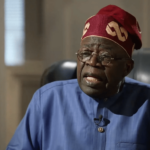The Nigerian economy has a very conflicting relationship with cryptocurrencies. While the government tries to ban it, Nigerian citizens seem to love it.
The banking ban from 2021 was one of the biggest attempts from the government to curb something it understands as a matter of national security. Yet, cryptocurrencies thrive at the heart of the Giant of Africa. Here’s what you need to know about the current situation of crypto assets in Nigeria.
Crypto Solutions
Despite the official prohibition, Nigeria is the country with the most intense crypto activity worldwide. It has about 33 million users in the country, most seeking alternatives to a faulty banking system. It means an increase in crypto trading since, in 2021, the country was ranked second. For comparison, Nigeria has even more users of cryptocurrencies than the United States.
How 774 LGAs can boost IGR from property, other taxes
Ekiti gov’ship: APC in early lead as PDP, SDP trail
The banking system doesn’t cover even 40% of the adult population. Meanwhile, transactions with cryptocurrencies charge much lower fees than any banking service. For those reasons, more Nigerian consumers opt for cryptos when shopping, gambling on online casino games or buying coffee.
A Matter of Security
Many specialists see cryptocurrencies as a matter of national security. After all, such an unregulated and anonymous kind of transaction can become a hub for financial crimes.
Such a concern isn’t exclusive to the Nigerian government. The Departments of Justice worldwide are also trying to find an effective way of preventing white-collar crimes. The Pentagon has even emulated a war game, where rebels would turn dirty money into cryptos.
In October 2019, the violent repression of a protest against police brutality led to the death of at least 50 demonstrators and mass incarceration. Civil organisations tried to raise funds for the legal cost of releasing the demonstrators. However, these accounts were all closed without notification.
The solution was then to resort to cryptocurrencies to fund the legal costs. Another successful example of using cryptos for such an end is the fundraising campaign led by the Feminist Coalition. They collectively managed to raise about USD 150,000 in cryptocurrencies.
Cat and Mouse
Every government attempt to curb cryptocurrencies seems to have been to no avail. Every year, the country climbs one position in crypto usage worldwide, now at the top of the ranking. It doesn’t mean that government agencies are sleeping, though. Six banks were fined this year for facilitating crypto transactions.
The banks involved are the Access Bank, the FCMB, the Stanbic IBTC, the Wema Bank, and the United Bank for Africa. Fines ranged from about USD 35,000 to USD 1.2 million. Since the banking ban, it’s up to the financial institutions to identify and report crypto transactions, which many banks admittedly have failed to do.
Encrypted Future
While the Nigerian government is adamant in its crusade against cryptos, the market doesn’t seem to care. Nigerians use more cryptos than any other country in the world, although the legal hassles imposed by the government make it more challenging to predict its future. Anyway, it’s hard to imagine cryptos will ever disappear from the country.




